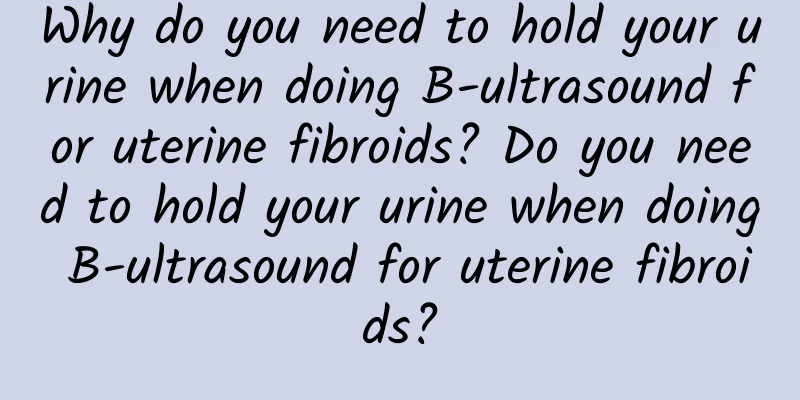Get rid of muscle soreness after exercise! Eat like this according to the three iron nutritionist

|
Have you finally made up your mind to exercise, but are often defeated by muscle soreness and give up halfway? You Weiming, a nutritionist at St. Martin's Hospital who feels unwell if he doesn't exercise for a day, said that whether it is an ordinary person who exercises to lose weight or someone who is eager to break their personal PB (abbreviation of personal best), muscle soreness is common. If you don't want to disrupt your plan of continuous exercise, you might as well start with these 3 dietary tips! Why do muscles ache easily after exercise? Nutritionist You Weiming said that if you have ever been injured, you will know the pain of a wound, and the muscle soreness after exercise is based on a similar principle. If we exercise too intensely and for too long, tiny cracks and ruptures will appear in the muscle fibers, or even muscle strains will occur, causing soreness during the recovery process. Especially for people who do not have the habit of exercising, their muscles cannot withstand intense stretching and contraction. If they suddenly participate in a 10km marathon, they will definitely have to be on high alert for about a week after the race. Since we know that muscle soreness is caused by muscle injury, then as long as you adjust the intensity and time of exercise appropriately and avoid excessive muscle injury, you don’t have to worry about muscle soreness! For example: if the daily exercise goal is to do 50 sit-ups, if you divide it into 2 times, 25 times each time, when you wake up the next day, you will feel so sore as soon as you use your stomach muscles, which means the exercise intensity is too high. After that, you can change to doing it 10 times a day, 5 times each time, and you can still achieve your exercise goal without getting muscle soreness due to excessive exercise! Eliminate muscle soreness, 3 things you must do after exercise However, when people exercise, they are inevitably eager to do well. They often exercise a little more because of the feeling that "today's exercise went smoothly" or "I'm in a good shape now". If they are not careful, they can easily over-exert themselves, resulting in muscle soreness, iron legs, and weak feet when walking down stairs. In this regard, nutritionist You Weiming, who frequently participates in triathlons and marathons, provides three tips for quickly eliminating muscle soreness. The first step is to stretch the exercise parts: it can relieve tense muscles, promote blood circulation, bring in more repair energy, and speed up muscle recovery. Especially after strenuous exercise, you must stretch and relax. Tip 2: Get enough rest: Let the injured muscles rest well and avoid strenuous exercise. This way, the muscles will not be injured again and the soreness will naturally disappear soon. Tip 3: Supplement nutrition: If you want injured muscle tissue to heal quickly, you need the help of nutrition to achieve twice the result with half the effort. The following are three recommended diets that can promote physical health and speed up the elimination of muscle soreness. [3 types of food to KO muscle soreness] (1) Eat 2 servings of fruit daily: According to a study published in the Journal of the International Society of Sports Nutrition, the vitamin C in fruit can shorten the duration of muscle inflammation and discomfort experienced by athletes after intense exercise. Therefore, people can eat oranges and papayas that are high in vitamin C after exercise to help eliminate muscle soreness and discomfort. (2) A moderate amount of high-quality protein at each meal: High-quality protein is found in soy products, fish, meat, eggs and milk. The Journal of Applied Physiology points out that 20 to 30 grams of high-quality protein (about 100 to 150 grams of cooked fish or meat) can support muscle repair and reduce muscle soreness. (3) Easily digestible whole grains and root vegetables: Carbohydrates can quickly provide sufficient energy and promote the accelerated recovery of damaged muscle tissue. In particular, pumpkin, sweet potato, porridge, toast, steamed buns and other easily digestible foods can provide energy earlier. Foods that are difficult to digest, such as oatmeal and glutinous rice, are not recommended for consumption after exercise. |
<<: Is fasting better than a low-calorie diet? 5 deadly risks of fasting
Recommend
Lifestyle considerations that can help prevent cervical erosion
Cervical erosion is a gynecological disease that ...
Healthy Weight Consultation now offers Internet and telephone services
Many computer users have become obese due to long...
Hourglass diet for anti-aging! Eat healthy sugars to lose weight
Are you still cutting out all carbs in an effort ...
Is vomiting before menstruation a disease?
Is vomiting before menstruation a disease? Vomiti...
How long does it take to detect abnormalities in ectopic pregnancy?
Recently, many patients have called to consult ab...
Causes and treatment of irregular menstruation
Irregular menstruation is a common problem for wo...
What care should patients with congenital absence of vagina pay attention to?
Congenital absence of vagina and uterus is a dise...
How to prevent pelvic effusion
Pelvic effusion is a manifestation rather than a ...
Symptoms of uterine erosion, 5 abnormal conditions caused by uterine erosion
Uterine erosion is also known as cervical erosion...
What tests should be done for pelvic peritonitis?
Pelvic peritonitis is a common disease among wome...
Surgical treatment of Bartholinitis
Bartholinitis in women is mostly caused by an inf...
Female stars eat oatmeal porridge and drink lemon water for three meals to lose weight... Doctor: If you want to be a long-legged and slender-waisted beauty, you need to know these landmines
Recently, a beautiful star passed away suddenly. ...
What should I do if my menstrual flow is small after uterine fibroid surgery?
Patient: I am 46 years old and have multiple uter...
What methods can be used to treat maternal uterine effusion?
Uterine effusion is a relatively common gynecolog...
Causes of Endometrial Tuberculosis
The cause of endometrial tuberculosis needs to be...









